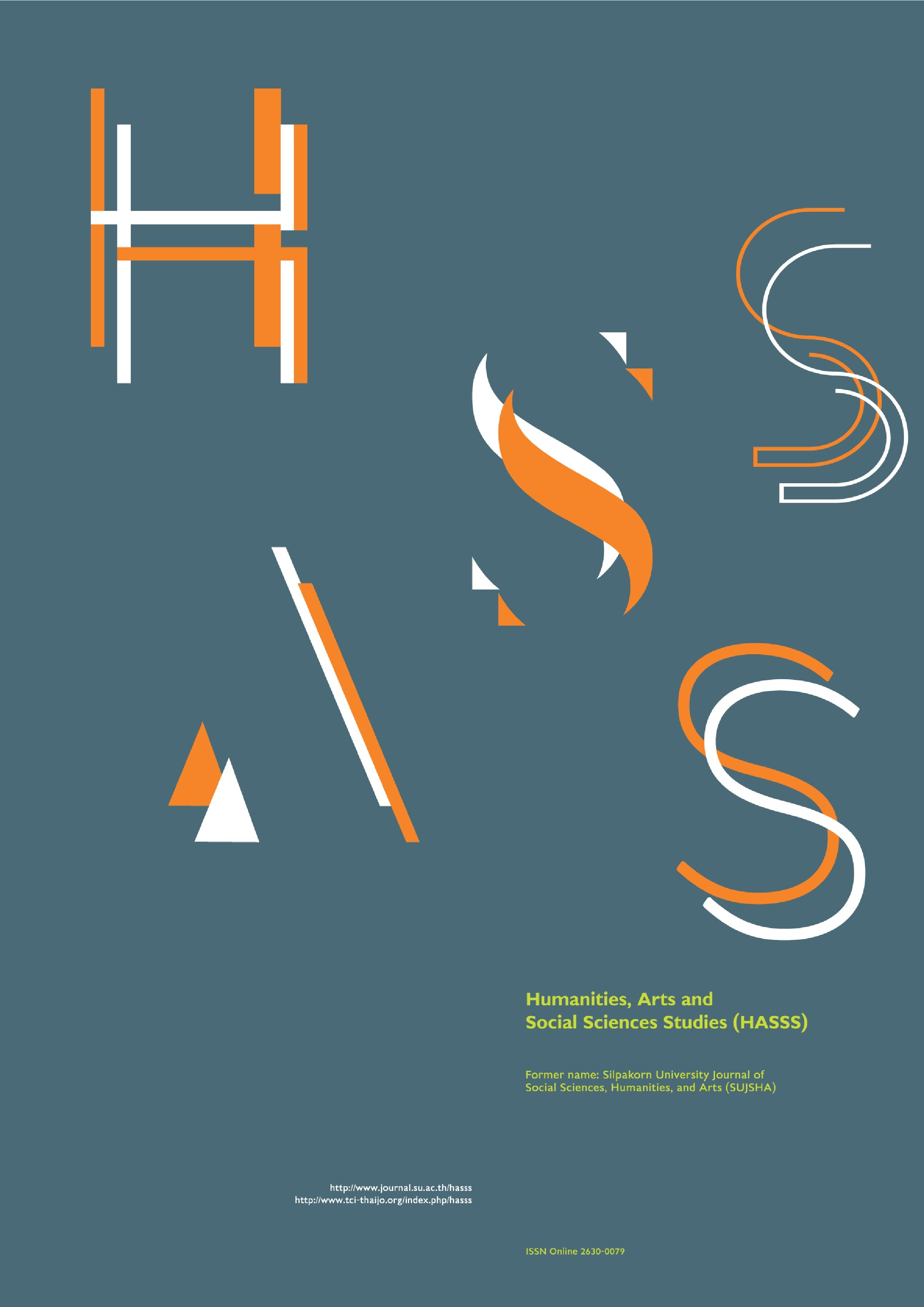“The sun is watching”: Unraveling the Sentani people’s ecological knowledge through folklore
Main Article Content
Abstract
Contrary to the beliefs of the ancient Sentani people, who used myths to protect the environment and avert terrible catastrophes, environmental degradation is a result of land exploitation, illegal mining, and pollution in today’s Sentani, Jayapura Regency, Papua, Indonesia. This research examined the traditional ecological knowledge found in Sentani folklore, i.e., orally sung lyrics known as ehabla that young people nowadays have mostly ignored. The data for this study include existing ehabla, in-depth interviews, and focus group discussions (FGDs) involving Sentani tribal leaders, elderly people, and ehabla chanters in Eastern, Central, and Western Sentani. Using ecocritical and sociocultural perspectives as analytical methods, the study focused on the neglected traditional Sentani ecopoetry, highlighting its rich ecological knowledge through consistent references to plant and animal names in its verses. Findings in this study underscore the importance of 1) ongoing revitalization, 2) promotion of this folklore, and 3) reintroducing ehabla to contemporary Sentani society. This study’s comprehensive approach may ensure the preservation and dissemination of traditional ecological knowledge for sustainable environmental practices. Thus, given the rapidly dwindling nature of Sentani today and the fact that ehabla is rarely known by the younger generation, continuing revitalization and promotion of this folklore form is critical.
Downloads
Article Details

This work is licensed under a Creative Commons Attribution-NonCommercial-NoDerivatives 4.0 International License.
All rights reserved. Apart from citations for the purposes of research, private study, or criticism and review,no part of this publication may be reproduced, stored or transmitted in any other form without prior written permission by the publisher.
References
Ahi, B., Yaya, D., & Ozsoy, S. (2014). The concept of environment in folktales from different cultures: Analysis of content and visuals. International Electronic Journal of Environmental Education, 4(1), 1–17. https://dergipark.org.tr/en/pub/iejeegreen/issue/7910/104123
Cámara-Leret, R., Fortuna, M. A., & Bascompte, J. (2019). Indigenous knowledge networks in the face of global change. Proceedings of the National Academy of Sciences, 116(20), 9913–9918. https://www.pnas.org/doi/abs/10.1073/pnas.1821843116
Chiparausha, B., & Mavhunduse, F. (2018). The role of folktales in the preservation of indigenous knowledge among the Shona: A review based on Aaron C. Hodza’s Ngano Dzamatambidzanwa. Southern African Journal for Folklore Studies, 24(2), 707–719. https://scecsal.org/publications/papers2018/043_chiparausha_2018.pdf
Clark, T. (2011). The Cambridge introduction to literature and the environment. Cambridge University Press.
Danandjaja, J. (1984). Folklor Indonesia: Ilmu Gosip, Dongeng, dan lain-lain [Indonesian Folklore: Knowledge of Gossip, Fairytales, etc.]. Grafiti Press. [in Indonesian]
Dewi, N., Siswanto, F. A. J., & Anggraini, F. R. R. (2019). Using short fiction to teach business and environmental ethics. International Journal of Learning, Teaching and Educational Research, 18(10), 34–47. https://www.ijlter.org/index.php/ijlter/article/view/1694
Dundes, A. A. (1980). Interpreting folklore. Indiana University Press.
Finnegan, R. (1992). Oral traditions and the verbal arts: A guide to research practices (The ASA research methods). Routledge.
Finnegan, R. (1977). Oral poetry: Its nature, significance and social context. Cambridge University Press.
Hubbell, J. A., & Ryan, J. C. (2021). Introduction to the environmental humanities. Routledge.
Larson, R. B. (2012). Water, worship, and wisdom: Indigenous traditional ecological knowledge and the human right to water. ILSA Journal of International & Comparative Law, 19, 43–67. https://ssrn.com/abstract=2045053
Lord, A. B. (1981). Singer of tales. Harvard University Press.
Nakashima, D., & Roué, M. (2002). Indigenous knowledge, peoples and sustainable practice. Encyclopedia of Global Environmental Change, 5, 314–324. https://web.mnstate.edu/robertsb/307/Indigenous_Knowledge.pdf
Ong, W. J. (2002). Orality and literacy: The technologizing of the word. Psychology Press.
Osemeobo, G. J. (1994). The role of folklore in environmental conservation: Evidence from Edo State, Nigeria. International Journal of Sustainable Development & World Ecology, 1(1), 48–55. https://doi.org/10.1080/13504509409469860
Pierotti, R. (2016). The role of myth in understanding nature. Ethnobiology Letters, 7(2), 6–13. https://www.jstor.org/stable/26423661
Revassy, L. (1989). Kepemimpinan Tradisional di Pedesaan Irian Jaya: Studi Kasus di Desa Ajau Sentani, Jayapura [Traditional Leadership in Irian Jaya Villages: A Case Study in Ajau Village, Sentani Jayapura]. Universitas Indonesia. [in Indonesian]
Robinson, J. M., Gellie, N., MacCarthy, D., Mills, J. G., O'Donnell, K., & Redvers, N. (2021). Traditional ecological knowledge in restoration ecology: A call to listen deeply, to engage with, and respect Indigenous voices. Restoration Ecology, 29(4), Article e13381. https://onlinelibrary.wiley.com/doi/full/10.1111/rec.13381
Ryan, J. C. (2017). Plants in contemporary poetry: Ecocriticism and the botanical imagination. Routledge.
Sari, A., Tuwo, A., Saru, A., & Rani, C. (2022). Diversity of fauna species in the mangrove ecosystem of Youtefa Bay Tourism Park, Papua, Indonesia. Biodiversitas Journal of Biological Diversity, 23(9), 4490–4500. https://doi.org/10.13057/biodiv/d230915
Sumarwati, S. (2022). Traditional ecological knowledge on the slope of Mount Lawu, Indonesia: All about non-rice food security. Journal of Ethnic Foods, 9, Article 9. https://doi.org/10.1186/s42779-022-00120-z
Tang, R., & Gavin, M. C. (2016). A classification of threats to traditional ecological knowledge and conservation responses. Conservation and Society, 14(1), 57–70. https://www.jstor.org/stable/26393228
Wiyatmi, W., Suryaman, M., Sari, E. S., & Dewi, N. (2023). Ecofeminist pedagogy in literary learning to cultivate environmental ethics awareness. Journal of Turkish Science Education, 20(2), 252–265. https://doi.org/10.36681/tused.2023.014
Yektiningtyas, W. (2019). Igniting folktales as children’s learning sources in Sentani Jayapura Papua. LITERA, Journal of Linguistics, Literature, and Their Teaching, 18(1), 105–117. https://doi.org/10.21831/ltr.v18i1.18841
Yektiningtyas, W., & Modouw, J. (2017). Infusing culture in English learning: An attempt to preserve cultural heritages in Jayapura municipality, Papua. LLT Journal: A Journal on Language and Language Teaching, 20(1), 40–48. https://doi.org/10.24071/llt.v20i1.506
Yektiningtyas, W., & Silalahi, E. (2020). Fables as media of environmental education for sentani children in Jayapura Regency, Papua. Celt: A Journal of Culture, English Language Teaching & Literature, 20(2), 235–255. https://doi.org/10.24167/celt.v20i2.2867
Yektiningtyas-Modouw, W. (2006). Helaehili dan Ehabla: Fungsinya dan Peran Perempuan dalam Masyarakat Sentani Papua [Helaehili and Ehabla: Function and Role of Women in Sentani Papuan Society]. Adicita Karya Nusa. [in Indonesian]
Yektiningtyas-Modouw, W. (2021). Mengenal Ehabla: Lantunan Lisan Sentani, Papua [Introducing Ehabla Sentani's Oral Chant of Papua]. UNY Press. [in Indonesian]


